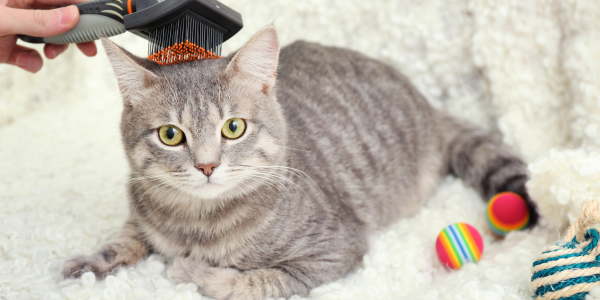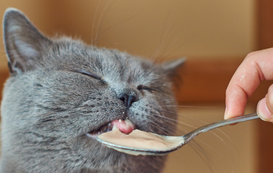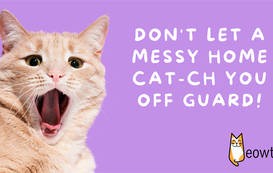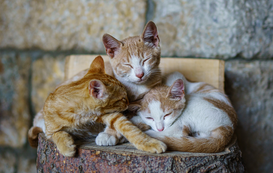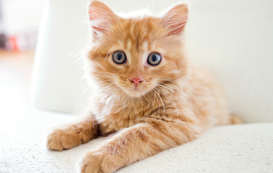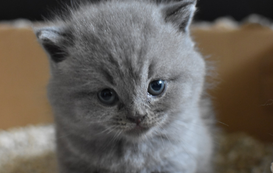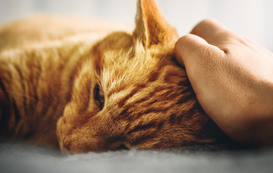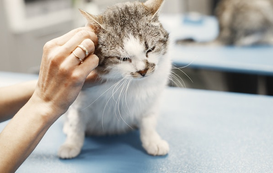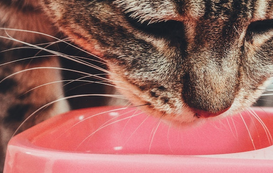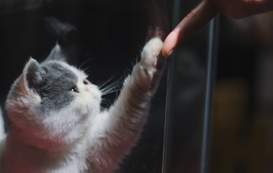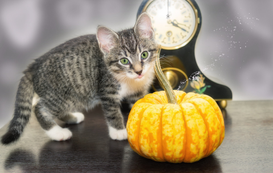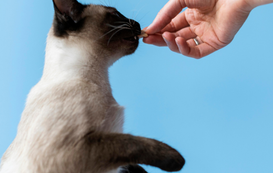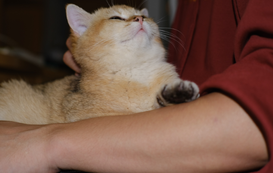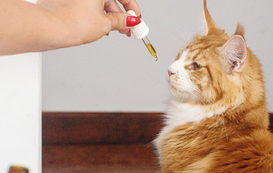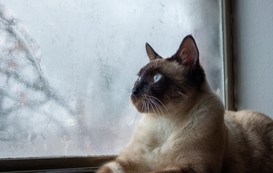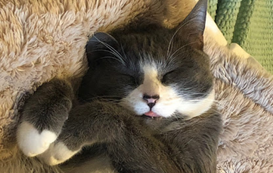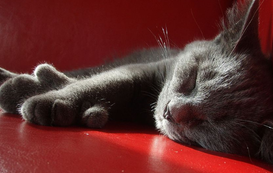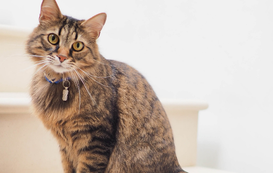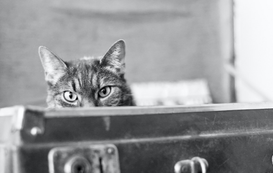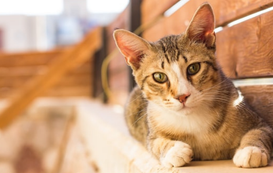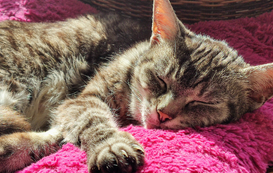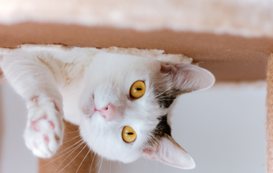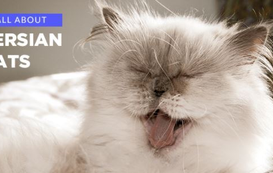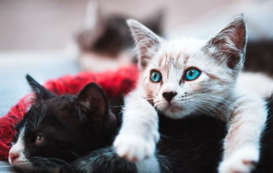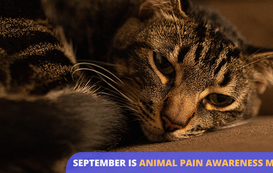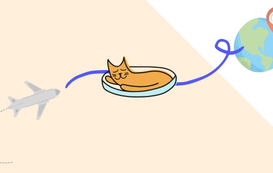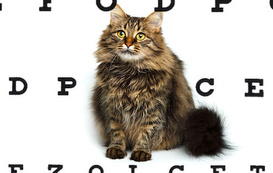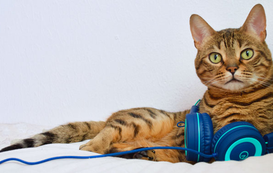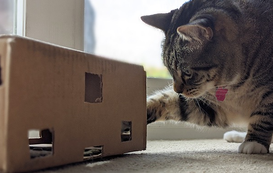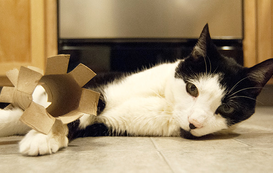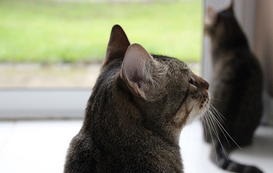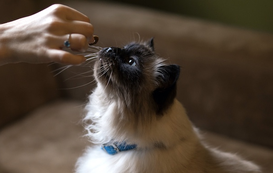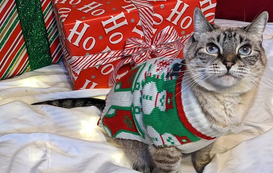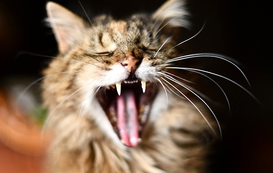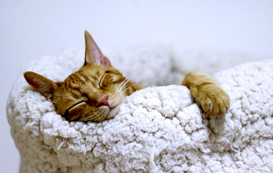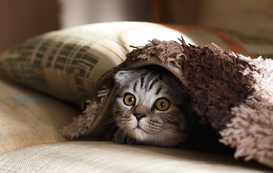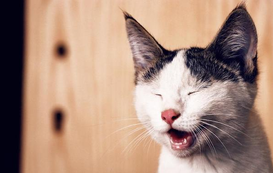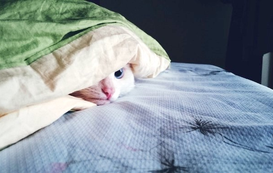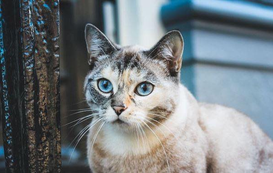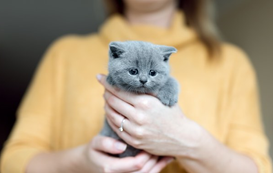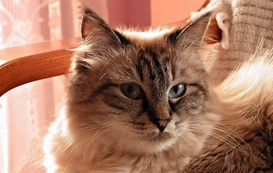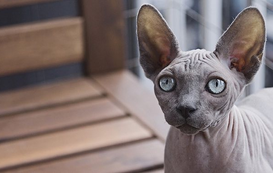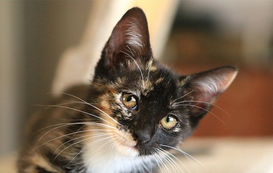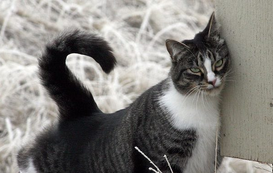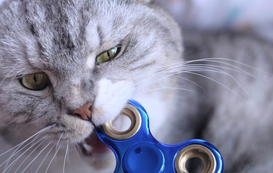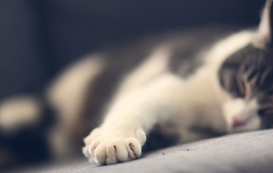It's normal to be concerned if your cat starts losing its hair. Some degree of shedding is normal and easily managed by grooming, but there are several common causes of hair loss. Learn more about those reasons and what to look out for.
Is It Normal for My Cat to Lose Hair?
Shedding hair is perfectly normal and managed by regular brushing. Just like dogs, many cats experience more fur loss during spring and fall as they transition between winter and summer coats. However, excessive hair loss, bald patches, or changes in your cat's skin can be signs of underlying health issues. If you suspect your cat's shedding isn't normal, a veterinarian can check for allergies, parasites, or skin infections.
3 of the Most Common Causes of Cat Hair Loss
Skin Conditions
A variety of skin conditions commonly cause hair loss in cats, each with its own reason and symptoms.
- Flea allergy dermatitis: Flea infestations are a main cause of skin problems in cats. Some cats are allergic to flea saliva. Even a few bites can trigger an intense allergic reaction. This can lead to excessive scratching, itching, and hair loss.
- Ringworm: Despite its name, ringworm is caused by a fungal infection. It can result in circular patches of hair loss, redness, and scaly skin.
- Bacterial or fungal infections: Bacterial or fungal infections of the skin can result in hair loss and bald spots.
- Hormonal imbalances or hypothyroidism: Thyroid disorders or Cushing's disease can lead to changes in the skin and coat, including hair loss.
- Allergies: Cats with allergies to cat foods or environmental factors, like pollen or dust mites, can manifest as fur loss.
- Mites and parasites: Infestations of mites can be very itchy, causing skin irritation and leading to hair loss.
- Psychogenic alopecia: In some cases, hair loss may be behavioral. Cats may excessively over groom themselves due to stress, anxiety, or boredom, leading to bald patches.
Food Allergies
Cats can develop allergies to specific ingredients in their food, such as proteins like beef or chicken. Allergic reactions may include itching, redness, rashes, or skin inflammation, prompting the cat to self-soothe by excessively grooming.
Identifying the specific allergen can be challenging. A veterinarian may conduct tests or recommend an elimination diet to pinpoint the possible causes. Treatment options often involve managing symptoms with medications, changes in diet, or environmental modifications to reduce exposure to allergens.
Stress
Cats are creatures of habit. Changes in their environment, routine, or interactions can induce stress. Behavioral signs of stress in cats may include excessive grooming, urine marking, changes in appetite (either overeating or under-eating), hiding, aggression, or vocalization.
Prolonged or severe stress can have physical consequences for cats. Stress is linked to conditions like feline lower urinary tract disease (FLUTD), digestive issues, and skin problems. Some cats may engage in excessive grooming or even pull out their fur due to stress, leading to hair loss.
Sometimes, underlying medical issues can contribute to stress in cats. Pain or discomfort from health problems may result in behavioral changes that mimic stress symptoms.
When Should I Be Concerned if My Cat Is Losing Hair?
Hair loss in cats can be common, but there are situations where it may indicate an underlying issue that requires attention. You should be concerned about your cat's hair loss if:
- Hair loss is sudden or excessive
- Hair loss is accompanied by skin changes such as dry skin, redness, inflammation, sores, or scabs
- Your cat regularly has hairballs or is vomiting. Both are signs of excessive grooming, which can lead to hair loss, but may also indicate an underlying digestive issue.
- The cat's behavior has changed in reaction to itchiness
- Parasites are visible, such as fleas or ticks
- Hair loss correlates with changes in eating or drinking. Internal parasites or mites can affect your cat's eating or drinking habits.
- Your cat displays signs of lethargy, reduced activity, or unexplained weight loss. All may require veterinary attention.
What Can My Vet Do to Help Cat Hair Loss?
Veterinarians can help with cat hair loss. They'll start by trying to determine the underlying cause through blood tests, fungal cultures, or allergy tests. The specific treatment will depend on the diagnosis.
They might suggest topical treatments, such as medicated shampoos, ointments, and parasite control for fleas and ticks. In cases of allergies, inflammation, or immune system disorders, a vet may prescribe medications such as antihistamines, corticosteroids, or immunosuppressants to manage symptoms and promote hair growth.
If nutritional deficiencies contribute to hair loss, a vet may suggest supplements to ensure your cat is getting essential nutrients.
In cases where excessive grooming is the result of stress or behavioral issues, a vet may recommend environmental changes, behavior modification techniques, or even anti-anxiety medications to address the underlying cause.
After the initial diagnosis, the vet will check with the cat owner to see how the cat is responding to treatment. From there, they might schedule follow-up appointments to monitor your cat's progress. If you notice any of the signs for concern, make an appointment with your veterinarian.
Cat sitters on Meowtel love cats and are happy to help care for your feline friend. Cats often prefer to stay in their homes. A sitter found on Meowtel can help reduce stress by allowing your cat to stay at home in their own environment. During in-home visits, sitters can refresh water and food, offer plenty of playtime, and monitor behavior. Sitters on the platform are independent contractors who have completed a background check, so you can feel at ease when you're away from home. When you need a reliable cat sitter on Meowtel, Meowtel can help you connect with the perfect match. Find a reliable and trustworthy cat sitter to help with pet care today.
Ready to help your kitty stay purr-fectly groomed? Find a cat sitter on Meowtel today!

